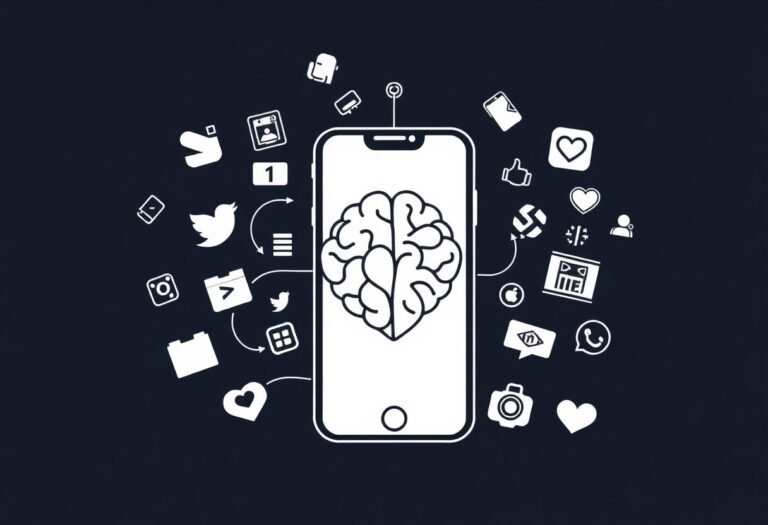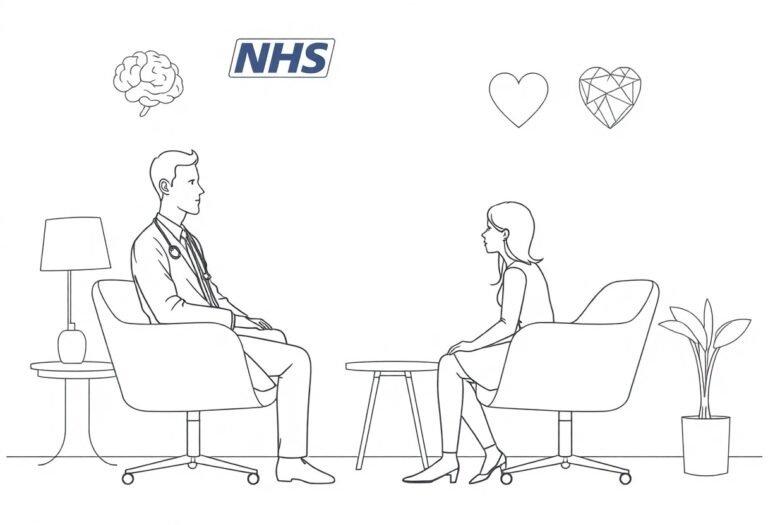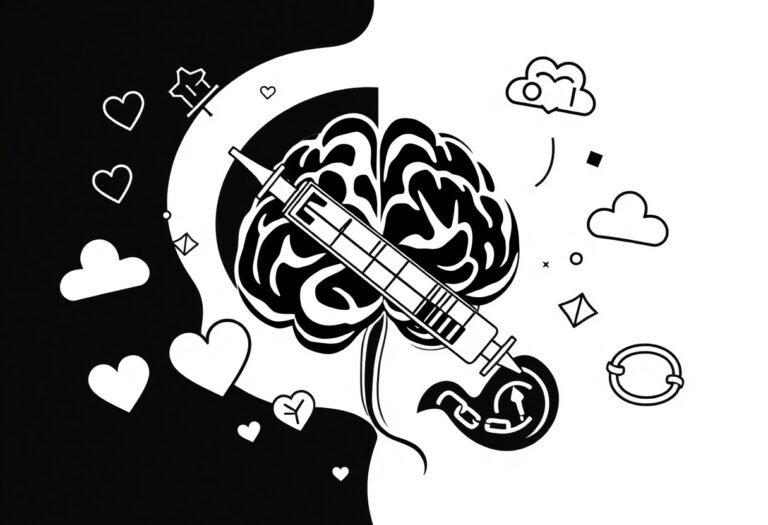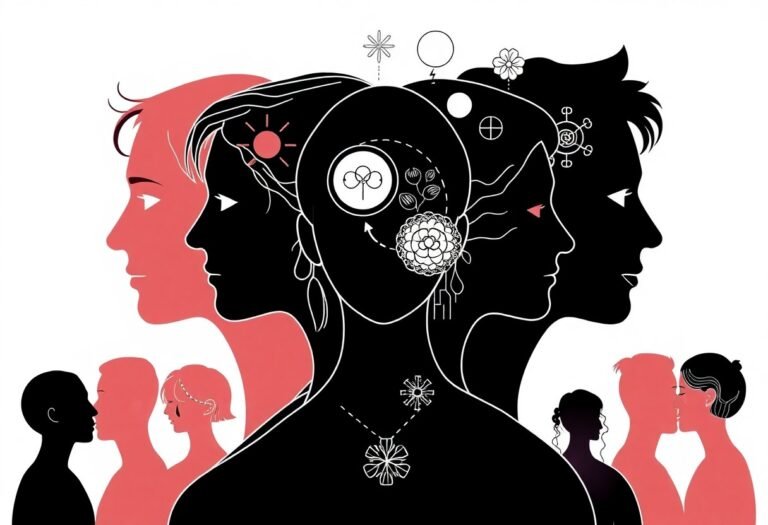Common Misconceptions About Mental Illness
Common Misconceptions About Mental Illness: Just because you may have heard various things about mental illness doesn’t mean they’re true. It’s easy to fall for a few common misconceptions that can shape how you view mental health. In this post, you’ll discover two prevalent myths that might surprise you and learn how understanding the facts can make a difference in your life and the lives of those around you. Let’s clear up the confusion together!
Key Takeaways:
Common Misconceptions About Mental Illness
- Mental illness is often mistaken as a sign of personal weakness, but it is a legitimate health condition requiring support and treatment.
- Many believe that mental illness only affects a small portion of the population; in reality, it impacts millions, regardless of age, gender, or background.
- Some perceive mental health issues as rare, overlooking the prevalence of conditions such as anxiety and depression in everyday life.
- There is a common belief that individuals with mental illness cannot lead productive lives, whereas many can manage their symptoms and thrive in various aspects of life.
- Stigma surrounding mental illness often prevents open discussions, leading to misconceptions that can hinder understanding and support for affected individuals.
1. Mental illness isn’t a personal weakness or character flaw.
2. Therapy and medication can effectively treat mental conditions.
3. Everyone’s experience with mental illness is unique and different.
4. Mental illness can affect anyone, regardless of background.
5. Stigma surrounding mental health can hinder seeking help.
6. Awareness and education can dispel common mental health myths.
Misconception 1: Mental Illness is a Sign of Weakness
While many people think that mental illness is a sign of weakness, this belief can be incredibly harmful. It implies that those who struggle with mental health challenges simply need to “try harder” or “toughen up,” overlooking the complex biological, psychological, and environmental factors that contribute to these conditions. Mental illness can affect anyone, regardless of their strength, resilience, or character.
Understanding the Reality
Reality shows that mental illness is a medical condition, much like diabetes or heart disease. It affects your brain’s chemistry and functioning, and it requires understanding, compassion, and often professional treatment. Just as you wouldn’t blame someone with a physical illness for their condition, the same applies to mental health. Recognizing this truth can foster a more supportive attitude toward those experiencing these struggles.
Why This Misconception Persists
Weakness can stem from cultural norms that equate vulnerability with failure. In a society that often prioritizes toughness and self-sufficiency, you may feel pressured to appear strong even when you’re not. This narrative can lead to stigma, making it difficult for you or others to openly discuss mental health challenges and seek the help needed. It’s important to challenge this misconception, as it keeps many from getting the support they deserve.
A combination of media portrayals, societal expectations, and personal experiences fuels this misconception. You might hear people trivialize mental health issues, focusing on the idea of resilience instead of acknowledging the legitimate struggles involved. This can create a culture where admitting to a mental health challenge feels like admitting to personal failure, ultimately deterring you or anyone else from seeking help or understanding your condition. Shifting this perspective is vital for fostering a more compassionate dialogue about mental health.
Misconception 2: People with Mental Illness Can Just “Snap Out of It”
Any suggestion that someone experiencing mental illness can simply “snap out of it” undermines the reality of their struggle. Mental health issues can stem from a variety of factors including biological, environmental, and psychological influences, making recovery much more complex than a mere change of mindset. Understanding that mental illness isn’t a choice helps in fostering compassion and support for those affected.
The Complexity of Mental Health
The journey through mental health is rarely a straightforward path. Various conditions, such as anxiety, depression, or schizophrenia, present different challenges and require tailored approaches to treatment. Your experiences can vary widely, and each person’s mental health journey is unique, which is why simplistic thinking doesn’t do justice to the depth of the issues at hand.
Importance of Support and Treatment
Behind every individual facing mental health challenges is a need for understanding, support, and effective treatment. Overcoming these obstacles often involves more than just personal will; it requires a strong support network and professional guidance. Encouragement from friends and family can significantly affect your recovery, making it easier for you to seek help and navigate the ups and downs.
Support plays a vital role in your mental health journey. Having a trusted friend to talk to, joining support groups, or seeking therapy can provide you with the understanding and resources needed to manage your mental illness. Engaging with professionals who specialize in mental health can offer you effective strategies for coping, allowing you to work toward recovery in a way that respects your unique experience. You are not alone, and a supportive environment can make all the difference in your healing process.

The Impact of Misconceptions on Society
Despite the growing awareness around mental health, misconceptions persist and can severely impact society. These misunderstandings can lead to discrimination, isolation, and even violence against individuals with mental health conditions. When society holds onto false beliefs, it hinders progress towards acceptance and support. The ripple effect of these misconceptions harms not just those directly affected but also creates a culture of fear and misunderstanding that affects everyone.
Stigma and Its Effects
Among the most harmful effects of misconceptions about mental illness is the stigma that can manifest in various forms. Many people avoid seeking help due to the fear of being judged or labeled, which can further exacerbate their struggles. This stigma becomes a barrier to treatment and leads to feelings of shame and loneliness. Addressing these misconceptions is vital to reduce stigma and make mental health support accessible for everyone.
Encouraging Open Conversations
Against the backdrop of these misconceptions, open conversations about mental health become vital. Engaging in discussions can help dispel myths and foster understanding. When you share your experiences or listen to others, you create a space for empathy and connection, making it easier for those in need to reach out for help. This can pave the way for a more supportive environment overall.
With open conversations, you cultivate an atmosphere where questions are welcomed and myths are dismantled. This can lead to more people feeling comfortable discussing their mental health challenges, reducing feelings of isolation. Engaging with friends, family, or community members about mental health topics can foster a culture of support and help in changing perceptions. By choosing to talk openly, you play an vital role in normalizing these discussions, ultimately contributing to positive change in society.
Ways to Combat Misconceptions
Now, tackling misconceptions about mental illness is necessary for fostering empathy and understanding. By actively engaging in discussions and sharing accurate information, you can help shift the narrative around mental health. This not only benefits those who struggle with mental illness but also encourages a supportive environment for everyone. Be proactive in your approach, advocating for change and encouraging open conversations within your community.
Educating Ourselves and Others
Any effort to combat misconceptions starts with education. By learning about the different types of mental illnesses and their effects, you empower yourself and others with knowledge. Share your insights with friends and family, and encourage them to engage in mental health discussions. The more informed we all are, the better we can support one another.
The Role of Media and Representation
Media plays a significant role in shaping perceptions of mental illness. It often influences how society views those living with mental health challenges, which can perpetuate harmful stereotypes.
Representation in media can significantly impact your understanding of mental illness. When films, shows, and news articles portray real experiences and struggles of individuals with mental health issues, they foster empathy and challenge stereotypes. You have the power to seek out and support media that accurately represents mental health. By sharing these positive portrayals, you contribute to a more accurate narrative that can help combat stigma and improve public understanding. Engage with creators who prioritize authentic storytelling, and advocate for a diverse range of voices in mental health discussions.
Resources for Further Learning
For those looking to deepen your understanding of mental illness, a variety of resources are available. Books, articles, websites, and community organizations can all provide valuable insights. Engaging with these materials can empower you with knowledge and promote a more compassionate perspective towards mental health.
Books and Articles
At your fingertips, there are numerous books and articles that explore mental health topics in depth. From personal narratives to scientific studies, these readings can offer you different perspectives and enhance your understanding. Engaging with a range of materials can help you connect with the complexities of mental illness.
Support Groups and Hotlines
An excellent way to find additional support is by reaching out to local support groups or helplines. These resources offer a safe space for you to connect with others who may share similar experiences, providing you with comfort and understanding. Professional hotlines can also offer immediate assistance and guidance when you need it most.
Resources like hotlines and support groups vary in scope and availability, but they are designed to provide you with help and understanding. By joining a support group, you gain a community that promotes shared experiences and healing. Hotlines can offer professional advice and a listening ear at any time. Don’t hesitate to reach out, as these resources are here for your benefit and well-being.
Conclusion
Considering all points, it’s clear that understanding mental illness helps break down barriers and combat misconceptions. You now know that mental health conditions are not a sign of weakness and do not define your character. By embracing awareness and empathy, you can help create a more supportive environment for those struggling. Keep educating yourself, as this knowledge empowers not just you but also those around you, fostering a community where mental health is prioritized and understood.
FAQ
Q: What is one common misconception about mental illness?
A: One common misconception is that mental illness is a sign of personal weakness or character flaws. In reality, mental illnesses are complex medical conditions that can affect anyone, regardless of their strength or resilience. They often arise from a mix of genetic, biological, environmental, and psychological factors.
Q: Do people with mental illness pose a greater risk of violence?
A: Another common misconception is that individuals with mental illness are more likely to be violent or dangerous. Research shows that the vast majority of people with mental health conditions are not violent and are more likely to be victims of violence than the general population. Mental health issues do not inherently make someone a threat to others.
Q: Can mental illness be resolved quickly with proper treatment?
A: Many people believe that mental illness can be quickly cured with treatment. However, mental health conditions often require ongoing management and support. Treatment can help manage symptoms and improve quality of life, but it typically involves a combination of therapeutic approaches and may take time to find the best solution for each individual.
Q: Are mental health issues only prevalent in adults?
A: Another misconception is that mental health issues only affect adults. In reality, mental illnesses can manifest in children and adolescents as well. Early intervention and treatment are vital for young people to help them cope with their challenges and improve their overall development and well-being.
Q: Is it possible to prevent mental illness?
A: Some people believe that mental illness can be entirely prevented through healthy living. While maintaining good physical health, social connections, and coping strategies can reduce the risk, it is important to understand that some individuals may still develop mental health conditions due to uncontrollable factors, such as genetics or traumatic experiences.







